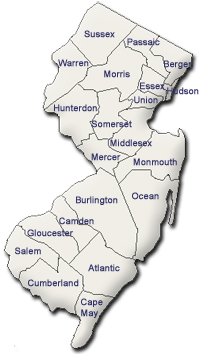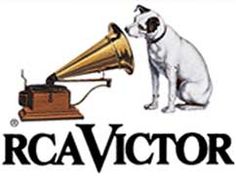Related Topics
Musical Philadelphia
Quakers never cared much for music, but the city has nonetheless musically flourished into international fame. At the same time, quarrels and internal battles have also been world class.
Land Tour Around Delaware Bay
 Start in Philadelphia, take two days to tour around Delaware Bay. Down the New Jersey side to Cape May, ferry over to Lewes, tour up to Dover and New Castle, visit Winterthur, Longwood Gardens, Brandywine Battlefield and art museum, then back to Philadelphia. Try it!
Start in Philadelphia, take two days to tour around Delaware Bay. Down the New Jersey side to Cape May, ferry over to Lewes, tour up to Dover and New Castle, visit Winterthur, Longwood Gardens, Brandywine Battlefield and art museum, then back to Philadelphia. Try it!
New Jersey (State of)
 The Garden State really has two different states of mind. The motto is Liberty and Prosperity.
The Garden State really has two different states of mind. The motto is Liberty and Prosperity.
The Victor Talking Machine Company
Thomas Edison gets credit for inventing the phonograph around 1880, but what he invented was a concept of scratching a roll of tin foil with a needle. The approach wasn't really feasible, and Alexander Graham Bell modified it to scratching a wax cylinder. That was somewhat better, becoming the basis for the Dictaphone single-use system which persisted for several decades. But both Bell and Edison went on to more promising things. Meanwhile, a man named Charles Cros wrote an article in 1887, quite astutely describing the whole process we now know as the phonograph record.
Meanwhile, a young machinist from Dover, Delaware was puttering around with various steps in the sound recording process, and in 1900 was ready to find the Victor Talking Machine Company at 10th and Lombard Streets in Philadelphia. But while Eldridge Reeves Johnson had big trouble patenting Charles Cros's prior discovery, he was nevertheless destined to be gloriously successful with Victrola records in ways later Philadelphia inventors were destined to fail, utterly, with the computer. The Patent Office pointed out that while Cros had the theory right, he never even made a working model of his idea. His inaction had no right to be called "prior art", but was more aptly called an "abandoned experiment".

|
| Victor Company |
Johnson, on the other hand, worked out all the many practical difficulties in the road of developing a useful and salable product. The size, shape, and composition of the phonograph needles, the best speed of rotation of the platter, the motors to make it run uniformly, the best way to magnify the sound, the way to create a metal master, from which many cheap wax impressions could be made. And so on, fighting with competitors and patent claimants, just about every step of the way. With the great good fortune to make ten early recordings of Enrico Caruso for a trivial payment, the Victor Company was soon on its way and had to move its plant to Camden, where there was more room to spread out and grow. The Philadelphia Orchestra enjoyed huge financial royalties and climbed into the first rank in world orchestras, greatly facilitated by the near-by convenience of the Victor recording studios. Philadelphia became a music capitol where once it had been a Quaker city that didn't much approve of music.
As things happen in the technology industry, Victrola records were hit hard by the advent of radio, which also largely originated in Philadelphia. Inventories of unsold products suddenly piled up, and poor old Eldridge Johnson was reluctantly forced to sell out to RCA, the Radio Corporation of America. Johnson was paid $23 million to cash out of his business -- in March 1929. If he had waited another six months, his prosperity for a life's work would have been meager.
Originally published: Friday, June 23, 2006; most-recently modified: Monday, June 03, 2019